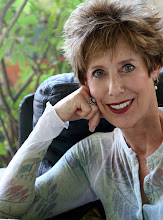Monday, March 28, 2011
Talk Pretty to Me
Wednesday, March 23, 2011
Surrender to the Now
Saturday, March 19, 2011
The 10% Solution
Monday, March 14, 2011
When the Journey Begins
Saturday, March 5, 2011
Singular Sensation
Hi, Boomers,
As you know, last week I admitted myself into the hospital for a laparoscopic procedure. But what I didn't write about was the following incident, which has stuck in my mind since the day I was admitted.
My friend had dropped me off at the Santa Monica UCLA out patient center on 15th and Arizona. very nice lady escorted me into the admissions room where I waited briefly to be admitted. A young woman was my contact. Sitting behind the desk, she seemed adequately pleasant but just a little “down.” I thought, perhaps, that she was worn out by admitting patients throughout the morning. After all, it was 11:15 by the time I got in front of her.
“Single and happy,” I replied.
Her head bolted up from the form and a look of shock over took her visage.
“What?” she asked in a voice supported by too much energy.
“Single and happy,” I responded again.
“Are you?” she asked curiously.
“I’m not interested in finding a man,” she said. “I’m okay with how it is. I’m single and that’s okay.”
I thought of the many times in the last years when someone surprised me with an invitation to go to a concert, to a movie, to dinner, made a new friend, didn't have to ask permission, didn't have to look after the needs of someone (of course, when one is love, that's part of the relationship), flitted off to Bali for a week's vacation, tangoed in Amsterdam, climbed the volcano in Costa Rica and thought that my life was completely and wonderfully fulfilled.
That was a sad thing for me to hear: the conventional wisdom says a woman isn't happy without a man. Really? Who made up that propaganda? Or more to the point: that's a myth we can dispose of.
I’ve been married for eighteen years, been in a long term relationship for sixteen years and have dated off and on for perhaps four years. However, when I divorced and started on yet another part of my journey, for the first time, I felt in control of my life and my choices. It was a perfectly freeing experience. And I haven’t lost my passion for life and living. I still work teaching yoga and meditation; I just wrote a book, Sixty, Sex, & Tango, Confessions of a Beatnik Boomer, I blog, I dance Argentine tango, I date when I want, I visit my adult children and grandchildren once a month; I have time to write a keynote speech, go to book festivals, be a supportive friend, keep up all those I love within my thoughts daily., and more importantly, have gratitude for all of my gifts.
“Thank you,” she said to me. “I’ve never heard that before from anyone and I’m so happy to be finally validated about how I feel about being single.”
Namaste
Joan


